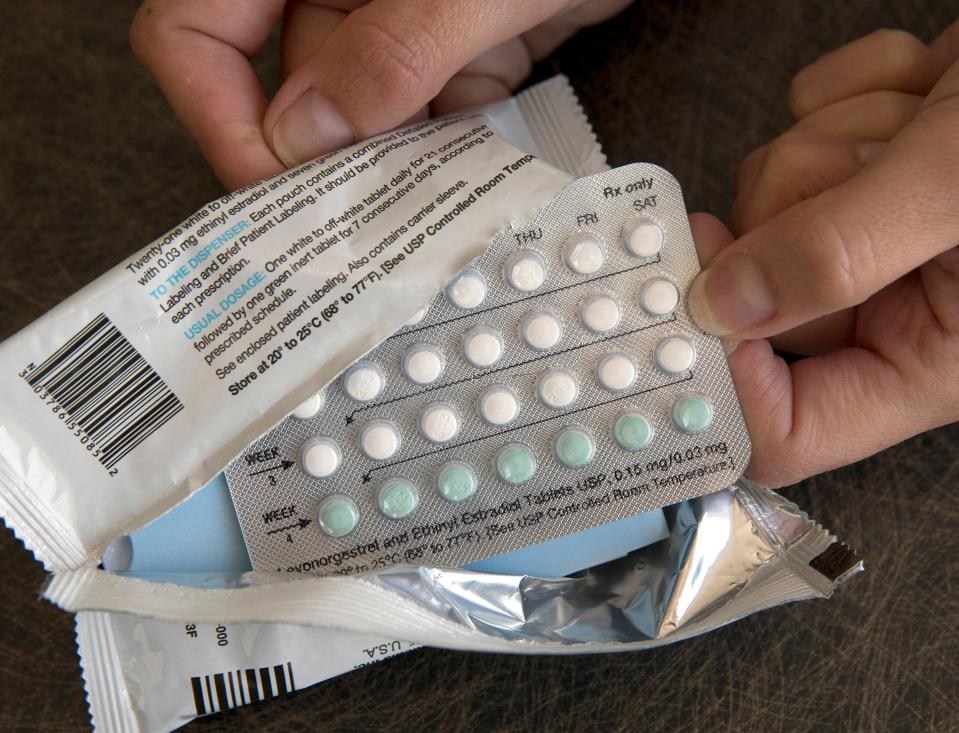Fact check: Most antibiotics don't interfere with birth control
The claim: Antibiotics ‘cancel out’ birth control
If you use birth control, a widely shared post on Facebook claims you should avoid antibiotics.
“PSA: Antibiotics will cancel out your birth control and your doctor will f---ing forget to tell you that,” reads a Facebook post shared more than 83,000 times.
The post was published in October 2018, but it continues to gain traction on Facebook. And the post's claim is misleading.
Experts say most antibiotics do not interfere with the effectiveness of contraceptives. The only exception is rifampin, an antibiotic used to treat tuberculosis.
USA TODAY reached out to the Facebook user who shared the post for comment.

Most antibiotics don’t make birth control less effective
Reproductive experts told USA TODAY the claim in the Facebook post is false, with one exception: rifampin.
“Only rifampin-like antibiotics make your birth control less effective – birth control meaning the pill, patch and ring,” Dr. Melissa Simon, vice chair of research at Northwestern University’s Department of Obstetrics and Gynecology, said in an email.
Rifampin, known in the U.S. by the brand names Rifadin and Rimactane, is used in tandem with other medications to treat tuberculosis in numerous parts of the body, according to the Mayo Clinic. It may also be prescribed to asymptomatic patients with meningitis in their nose or throat to prevent spreading bacteria to others.
Dr. Neel Shah, an assistant professor of obstetrics, gynecology and reproductive biology at Harvard Medical School, said rifampin is an “older and rarely used” antibiotic. But that doesn't mean contraceptive users shouldn’t be wary of other medications and supplements.
Fact check: Pfizer's FDA-approved vaccine is available in US
“There are other examples of prescription medications and herbal remedies that can interact with oral contraceptives, including certain sleep medications and St. John's wort,” Shah said in an email.
Simon said certain HIV, antifungal and anti-seizure medications – as well as provigil, a stimulant used to treat excessive sleepiness – could cause birth control to be less effective. Both Simon and Shah said patients should consult with their doctors before starting new medications to ensure they won't negatively interact with contraceptives.
“I would encourage people to be open with their concerns and communicate with their doctor to make sure they are being prescribed the medications they need effectively,” Shah said.
Our rating: Partly false
Based on our research, we rate the claim that antibiotics "cancel out" birth control PARTLY FALSE. Experts say most antibiotics do not interfere with birth control. The sole exception is rifampin, a tuberculosis antibiotic that is rarely used.
Our fact check sources:
Dr. Neel Shah, Oct. 22, Email exchange with USA TODAY
Dr. Melissa Simon, Oct. 22, Email exchange with USA TODAY
Mayo Clinic, retrieved Oct. 23, Rifampin
RxList, retrieved Oct. 23, Provigil
Planned Parenthood, Sept. 12, 2019, Can antibiotics affect my birth control?
Healthline, Jan. 31, 2019, The Myth of Antibiotics and Birth Control
WebMD, Dec. 12, 2019, Medicines That Interfere With Birth Control Pills
Thank you for supporting our journalism. You can subscribe to our print edition, ad-free app or electronic newspaper replica here.
Our fact-check work is supported in part by a grant from Facebook.
This article originally appeared on USA TODAY: Fact check: Most antibiotics don't interfere with birth control

 Yahoo Movies
Yahoo Movies 
